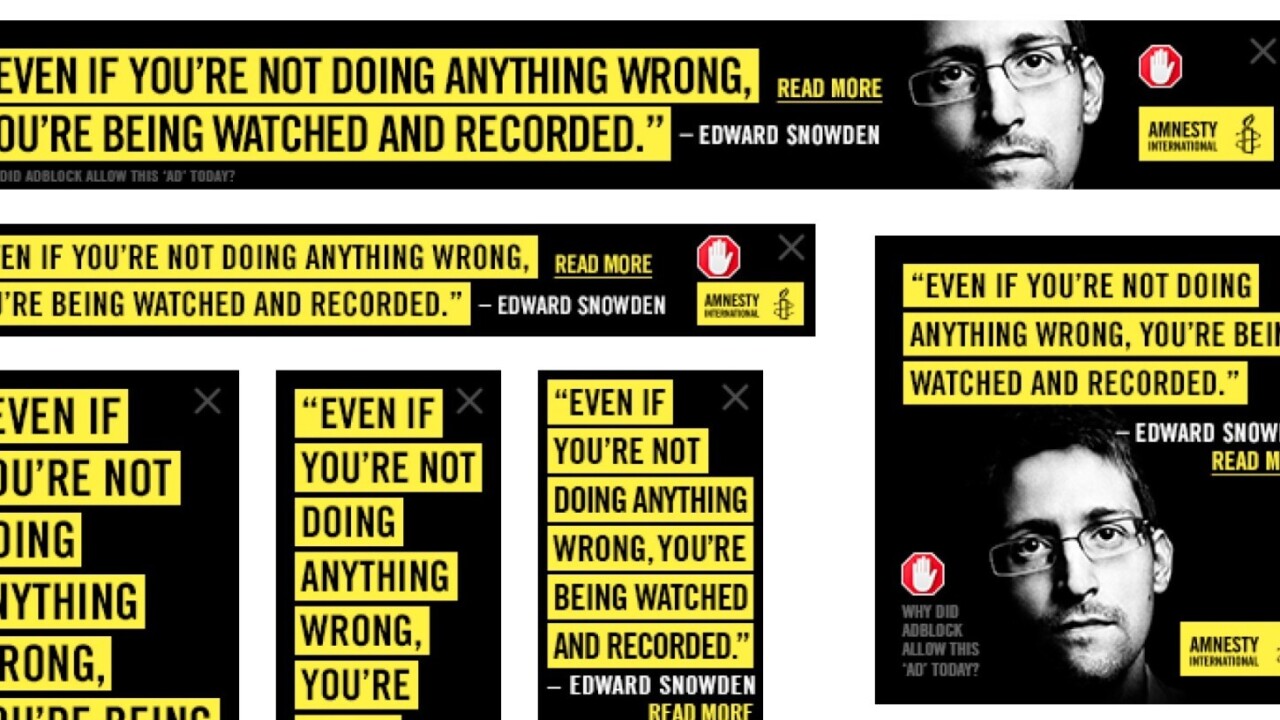
This is slightly ironic. AdBlock plans to show advertising to its 50 million users tomorrow for 24 hours protesting online censorship in support of an Amnesty International campaign.
On March 12, AdBlock users will see messages from Edward Snowden, Pussy Riot and Ai Weiwei protesting cyber censorship. Each advertisement will appear in the form of banner ads and send viewers to longer content from each person.
The campaign, which is part of World Day against Cyber Censorship, is trying to highlight that governments are increasingly seeking to control online communications through mass surveillance.
Amnesty International points out that in the last year alone Denmark, Finland, France, the Netherlands, Pakistan, Poland and Switzerland have passed new intelligence bills that do exactly that.
Each advertisement contains a strong message from a group or individual that’s been personally affected by surveillance, urging viewers into action. It’s a good cause, and only AdBlock users will see the messages.

It’s obviously a good cause that the extension is trying to get behind, though somewhat amusing that it’s delivering that message using a method that it works to banish from the Web.
Despite the fact that AdBlock censors and blocks the revenue streams of publishers, it’s evidently more than happy to allow advertising that it alone deems important enough.
AdBlock’s CEO, Gabriel Cubbage, said that “we’re showing you Amnesty International banners, just for today, because we believe users should be part of the conversation about online privacy. Tomorrow, those spaces will be vacant again.”
“Take a moment to consider that in an increasingly information-driven world, when your right to digital privacy is threatened, so is your right to free expression,” Cubbage continued.
It’ll be interesting to see how users react to the advertising and if the campaign helps make people more aware of online censorship – or just annoys them off by making them see more ads.
Get the TNW newsletter
Get the most important tech news in your inbox each week.





